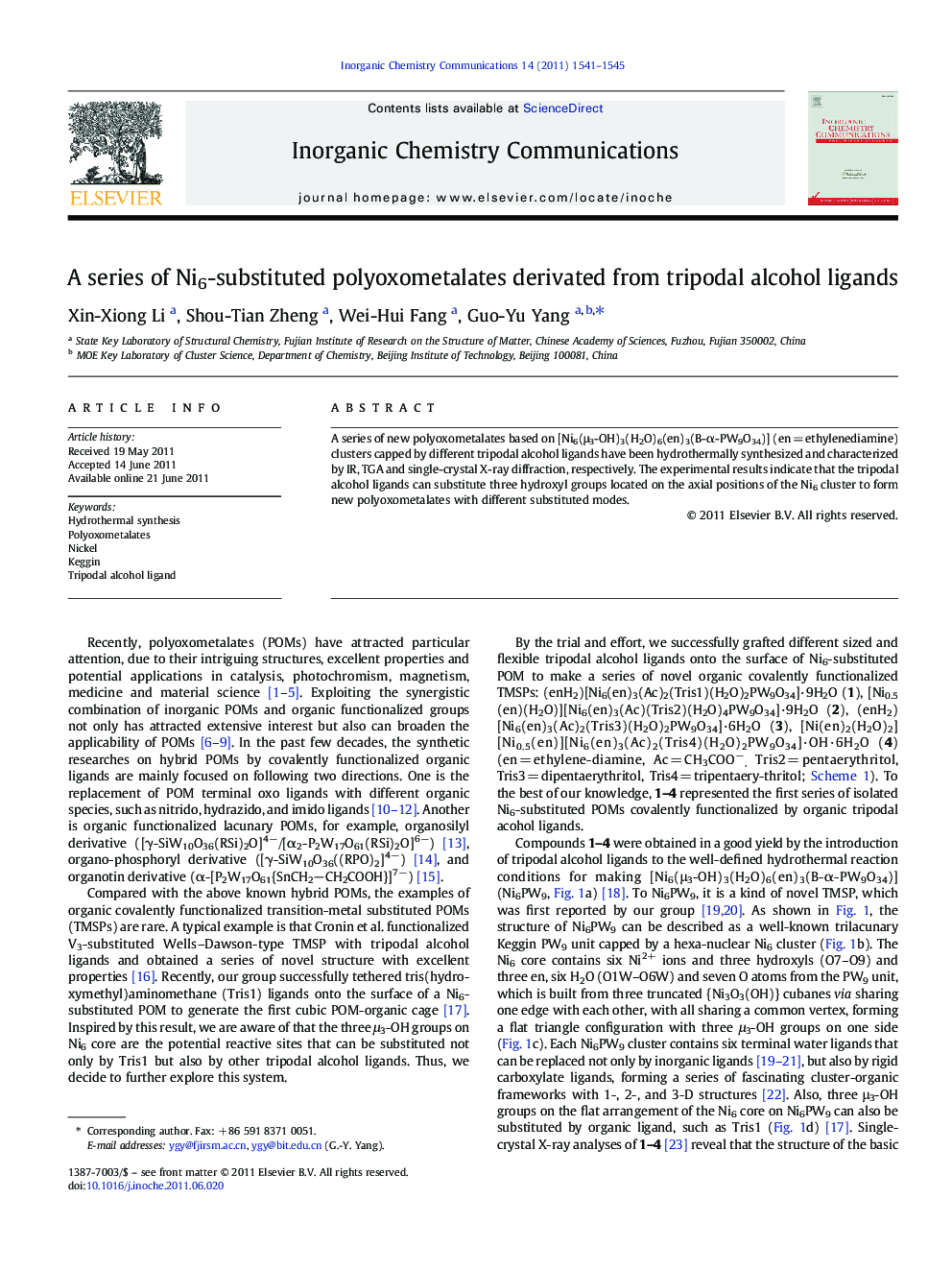| Article ID | Journal | Published Year | Pages | File Type |
|---|---|---|---|---|
| 1302584 | Inorganic Chemistry Communications | 2011 | 5 Pages |
A series of new polyoxometalates based on [Ni6(μ3-OH)3(H2O)6(en)3(B-α-PW9O34)] (en = ethylenediamine) clusters capped by different tripodal alcohol ligands have been hydrothermally synthesized and characterized by IR, TGA and single-crystal X-ray diffraction, respectively. The experimental results indicate that the tripodal alcohol ligands can substitute three hydroxyl groups located on the axial positions of the Ni6 cluster to form new polyoxometalates with different substituted modes.
Graphical abstractFour new polyoxometalates based on [Ni6(μ3-OH)3(H2O)6(en)3(B-α-PW9O34)] (en = ethylenediamine) units have been hydrothermally synthesized and structural characterized, in which the tripodal alcohol ligands can substitute three hydroxyl groups located on the axial positions of the Ni6 cluster to form new polyoxometalates with different substituted modes.Figure optionsDownload full-size imageDownload as PowerPoint slideResearch highlights► Three-dimensional organic–inorganic hybrid polyoxometalates (POMs). ► The axial OH groups of the Ni6 core can be replaced. ► The substituted POMs decorated by flexible tripodal alcohol ligands (TALs). ► The introduction of the TALs provides new potential for the structure expansion.
